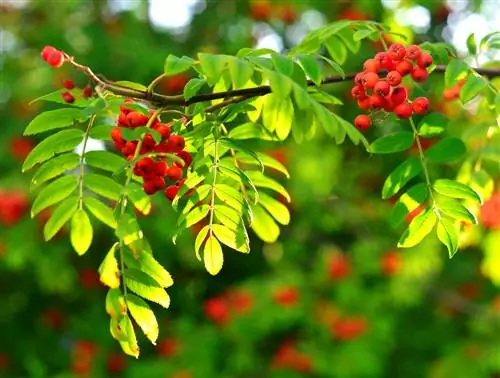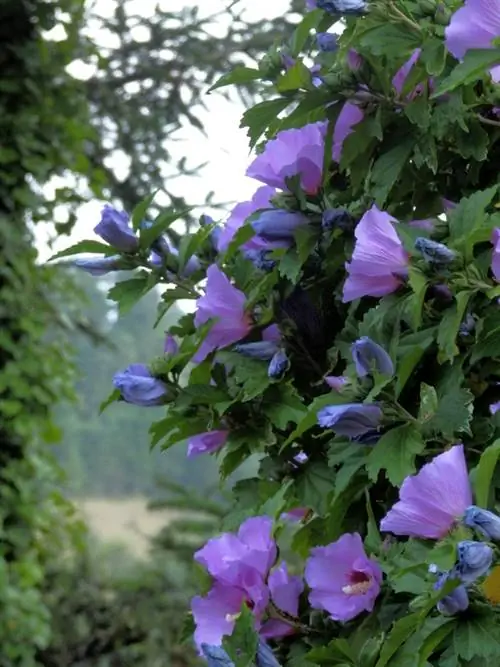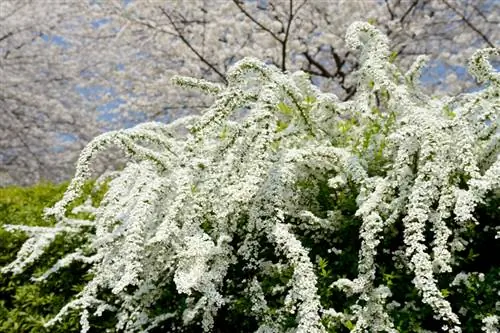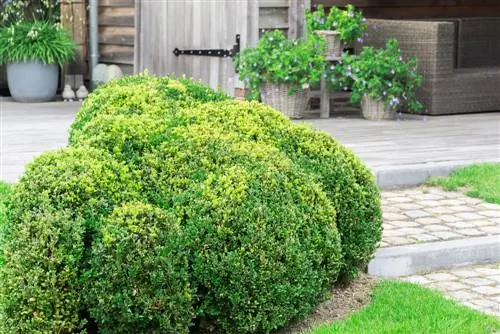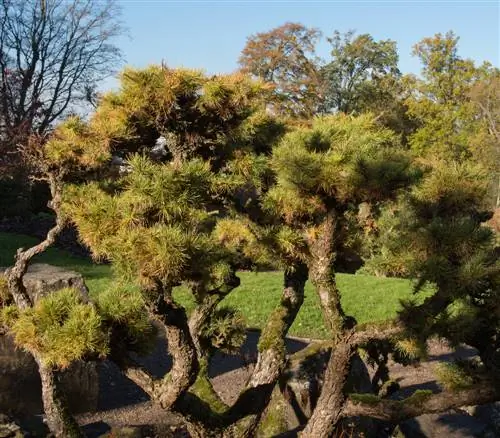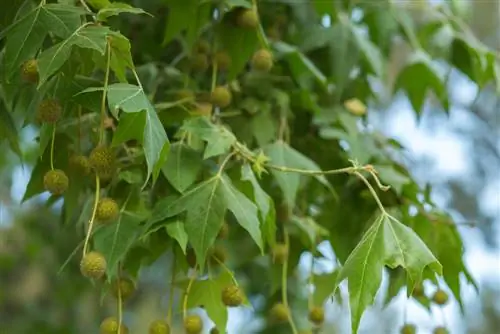- Author admin leonars@hobbygardeners.com.
- Public 2023-12-16 16:46.
- Last modified 2025-01-23 11:21.
Trees are an asset for almost every garden: they represent a visual focal point, provide shade as well as food, habitat and protection for birds and other small animals. But given the almost endless number of different species and varieties, choosing the right tree for your own garden is difficult. The following article is intended to provide an overview and an initial decision-making aid.
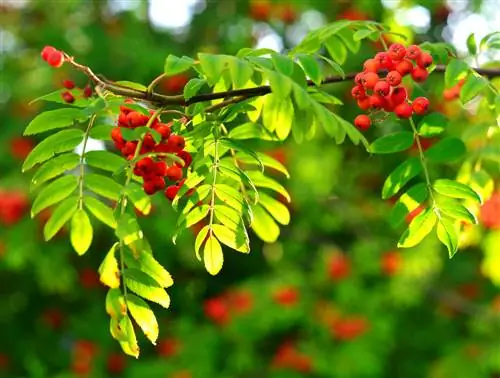
Which types of trees are suitable for gardens?
Coniferous trees such as thuja and juniper as well as deciduous deciduous trees such as maple, birch and oak are suitable for the garden. Evergreen deciduous trees such as holly, boxwood and evergreen oak are ideal for opaque hedges. Fruit trees are also a good choice but require more care.
Conifers
In terms of evolutionary history, conifers are the oldest trees - the first forms appeared towards the end of the Stone Age and are therefore at least 100 million older than the earliest deciduous trees. There are around 650 different species on earth, not all of which are of course suitable for a Central European garden. Important properties of suitable conifers are:
- Winter hardiness
- Needs regarding location, care and soil
- Growth and height
The latter point in particular is of great importance for a garden tree: Some species such as the coastal redwood or the primeval redwood can reach gigantic proportions and blow up any garden. In general, conifers are considered to be very easy to care for, as they do not shed any leaves or fruit. Many species cannot be cut, so you should always choose conifers that tolerate pruning (e.g. thuja, juniper) for hedges.
Deciduous trees
In terms of biodiversity, the group of deciduous trees is much larger than that of conifers: nobody knows exactly how many species there are in the world. Typically, deciduous trees are divided into deciduous and evergreen varieties, i.e. H. in species that shed their leaves in autumn and those that keep their leaves all year round.
Summer green deciduous trees
Popular summer green deciduous trees for gardens and parks include
- Maple (Acer)
- Alder (Alnus)
- Birch (Betula)
- Beech (Fagus)
- Hornbeam (Carpinus)
- Ash (Fraxinus)
- Willow (Salix)
- Linde (Tilia)
- Poplar (Populus)
- Oak (Quercus)
- Wowberries (Sorbus)
- Hawthorns (Crataegus)
The species mentioned offer a wide variety of varieties, many of which have been cultivated and therefore perfect for the garden. There are numerous dwarf forms for small gardens and front gardens.
Evergreen deciduous trees
Most deciduous trees are bare in winter. However, if you don't want to miss out on an opaque hedge all year round, you should use conifers or evergreen deciduous trees. These include, for example,
- Holly (Ilex)
- Portuguese laurel cherry (Prunus lusitanica)
- Common boxwood (Buxus sempervirens)
- True laurel (Laurus nobilis)
- Wintergreen / Evergreen Oak (Quercus turneri 'Pseudoturneri')
Tip
Fruit trees are also summer-green deciduous trees, but require a comparatively high amount of care and a location in full sun. You can harvest delicious fruit directly from the tree.

